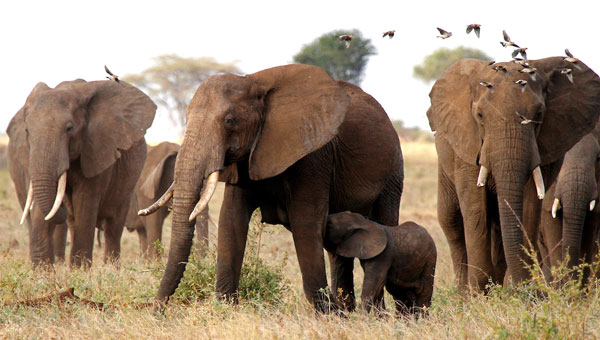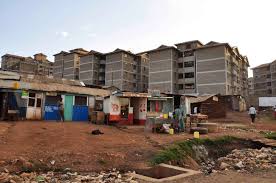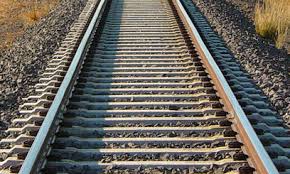- The objective of the Social Pillar is investing in the people of Kenya.
- The Social Pillar will improve the quality of life for all Kenyans , specifically:
a) Education and training
b) Health
c) Environment
d) Housing and urbanisation
e) Gender, children and social development
f) Youth and sports
Watch and listen to this video about Vision 2030's Social Pillar:
Provide globally competitive quality education, training and research to all for development and enhanceed individual well being. This will be done by:
a) Recruitment of 28,000 Additional Teachers
b) Establishment of a Voucher System Programme in Five of the Poorest Districts
c) Establishment of Centres of Specialisation
d) Construction and Equipping of 560 Secondary Schools, expansion and Rehabilitation of Existing Schools
e) Construction and Rehabilitation of at Least One Boarding Primary School in Each Constituency in Arid and Semi Arid Lands
f) Establishment of a Computer Supply Programme
e-learning classroom
Provide health care to all Kenyans .
This will be done by:
a) Promoting preventive health
This means teaching people how not to get sick, rather than just treating them when they are sick.
b) Government will provide health access .
c) Providing a strong health infrastructure.
d) Improve the quality of heath sevice delivery to the highest levels

Kenyatta National Hospital
- This arm of the Social Pillar aims to conserve the beautiful natural treasures that make Kenya such a special country.
Projects include:
a) Waste management system
b) Rehabilitation and Protection of Indigenous Forests in Five Water Towers
c) Preparation of a National Spatial Plan
d) Secure Wildlife Corridors and Migratory Routes
- Our forests, national parks and animals are some of the most precious resources we have as Kenyans.
- Look at this elephant in Meru National Park.

- Have you ever seen an elephant yourself?
- Do you know they are in danger of being extinct by the time you have children of your own?
- Talk to your teacher, friends and famiy about why elephants, trees, rivers and other animals and natural resources are important.
- How we can all work to conserve them.
- Aims at developing adequate housing that is affordable and accessible to all.
- More than half of our country's population will be residing in urban areas by the year 2030.
- Key strategies focus on:
a) Enhanced access to adequate finance for devopers and buyers
b) Better development of and access to affordable and adequate housing for the rest of the population
c) Key reforms to unlock the potential of housing sector through private public partnerships

Slum upgrading project - Kibera
Lapsset corridor design layout
- The goal for 2030 is to increase opportunities all-round among women, youth and all disadvantaged groups. Specific strategies will involve:
a) Increasing the participation of women in all economic, social and political decision-making processes (e.g. through higher representation in Parliament)
b) Improving access of all disadvantaged groups (e.g. business opportunities, health and education services, housing and justice)
c) Minimizing vulnerabilities through prohibition of retrogressive practices (e.g., female genital mutilation, child labour) and by up scaling training for people with disabilities and special needs.
- What does "vulnerable" mean to you?
- Do the thoughts and opinions of physically handicapped people, women and young people matter as much as the thooughts and opinions of others?
- Of course they do!
- If we listen and include everyone in our conversations, we can make Kenya a more equitable and just society.
- Talk to your friends about why this is important to you.
This project aims to provide financial support to young entrepreneurs by facilitating access to credit.
- This arm of the social pillar aims to reduce the number of people living in poverty.
- That will be achieved by:
a) Placing the citizens at a level of income sufficient to cater for their basic requirements of a healthy, productive life
b) Increasing school enrolment for girls and children from poor, rural and slum communities
c) Widening coverage of ‘essential healthcare’
d) Equitable distribution of water, sewerage and sanitation services
e) Improvements in public transport
f) Attaining gender parity
g) Fairness in delivery of justice.
- What do you understand "poverty" to mean?
- Can someone simply choose to stop being poor?
- Sometimes it's not so easy.
- How hard it was for someone to attend school, falling ill and even difficulty in getting from home to work can affect one's chances of changing their circumstances.
- We all have a part to play in counting our blessings, however small they may seem.
- If you are reading this, consider yourself lucky and ask yourself how you might be able to help someone less fortunate than yourself.
- Today, tomorrow, next week and when you are an adult.

- Railway tracks - Kenya is building a modern railway system to ease traffic congestion in Nairobi city.
Thika Super Highway